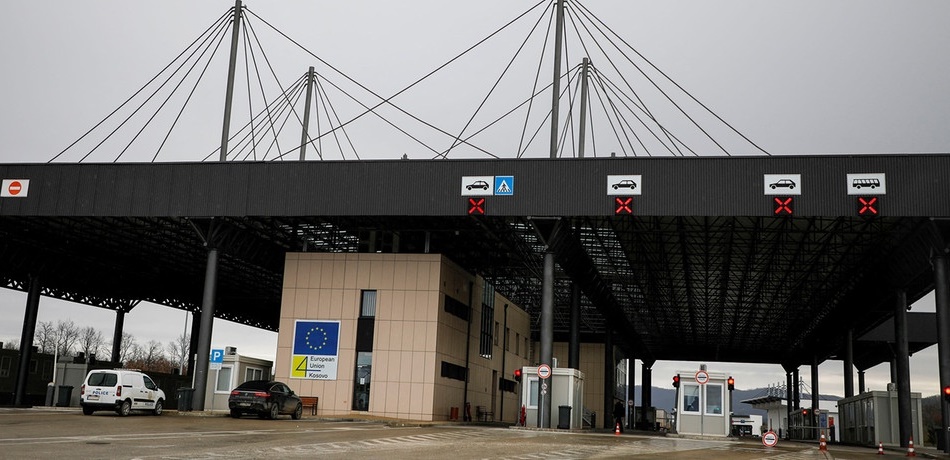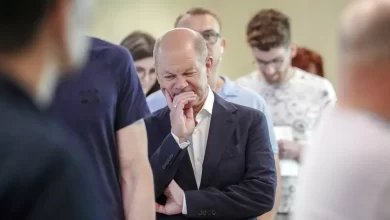Kosovo has closed the largest border crossing with neighboring Serbia. The Kosovar Ministry of Foreign Affairs explained on Facebook that anyone traveling in Serbia had to use other border crossings or enter the country via North Macedonia.
Two other border crossings have been closed since December 10th. Only three crossings between Kosovo and Serbia are currently open.
Consequential blockade on the Serbian side
On the Serbian side, demonstrators had previously blocked access to the Merdare border crossing. The blockade has had particularly serious consequences for Kosovo, as thousands of Kosovars working abroad who want to use the holidays to visit their homeland are now being forced to take detours. In addition, Merdare is the most important border crossing for trucks.
Serbian President visits army barracks
Against the background of the new tensions, Serbian President Aleksandar Vucic visited an army barracks in the town of Raska, near the border. On his Instagram page he published a photo that night showing him with the Serbian chief of staff Milan Mojsilovic.
He thanks all members of the security forces who would do everything to protect the Serbs in Kosovo, wrote Vucic. Most recently, Serbia had put the army on high alert.
Barracks near the buffer zone
Raska is about ten kilometers from the border with Kosovo. The barracks Vucic visited is not far from a five-kilometer-wide buffer zone along the Kosovo border, into which Serbian security forces are only allowed to penetrate with the permission of the NATO-led security force KFOR stationed in Kosovo.
This is part of the accords struck after the 1999 NATO airstrikes that led to the complete withdrawal of Serbian security forces and administration from Kosovo.
Barricades erected weeks ago
Almost three weeks ago, militant Serbs erected barricades in the predominantly Serb-inhabited north of Kosovo, blocking the roads to the border crossings to Serbia in particular. In doing so, they are protesting against the arrest of a former Kosovo police officer of Serbian origin who, according to the Kosovan authorities, had led attacks on officials of the electoral commission.
The militants in Serbia are supported and in some cases guided by the government in Belgrade. Kosovo, which is now almost exclusively inhabited by Albanians, used to belong to Serbia and has been independent since 2008. Unlike many other countries, Serbia does not recognize the independence of Kosovo and claims the country’s territory for itself.

 German elections and why this vote is important
German elections and why this vote is important The Royal Mile is becoming increasingly dangerous
The Royal Mile is becoming increasingly dangerous Scholz speaks to Putin on the phone for the first time in two years
Scholz speaks to Putin on the phone for the first time in two years